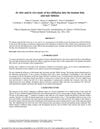 25 citations,
January 2013 in “Journal of Industrial and Engineering Chemistry”
25 citations,
January 2013 in “Journal of Industrial and Engineering Chemistry” Some herbal extracts, especially when used in cubosomal suspensions, were as effective as Minoxidil in promoting hair growth.
 25 citations,
December 2008 in “Journal of Dermatological Case Reports”
25 citations,
December 2008 in “Journal of Dermatological Case Reports” In vivo reflectance confocal microscopy is useful for evaluating hair shaft diseases but needs improvement for deeper hair follicle issues.
[object Object]  21 citations,
December 2012 in “European journal of pharmaceutics and biopharmaceutics”
21 citations,
December 2012 in “European journal of pharmaceutics and biopharmaceutics” The nanoparticle-emulsion with polihexanide is more effective and lasts longer for skin antisepsis.
 17 citations,
June 1996 in “The Journal of Steroid Biochemistry and Molecular Biology”
17 citations,
June 1996 in “The Journal of Steroid Biochemistry and Molecular Biology” FCE 28260 is a stronger and longer-lasting inhibitor of 5α-reductase than finasteride, which may make it a better treatment for certain medical conditions.
 17 citations,
June 2017 in “Journal of pharmaceutical sciences”
17 citations,
June 2017 in “Journal of pharmaceutical sciences” Researchers developed a nanomedicine for acne treatment that delivers medication with less irritation and is non-irritating for oily skin.
 16 citations,
August 2014 in “Colloids and surfaces. B, Biointerfaces”
16 citations,
August 2014 in “Colloids and surfaces. B, Biointerfaces” Lipid-coated silica nanoparticles penetrate human skin more deeply than bare silica nanoparticles.
14 citations,
December 1991 in “PubMed” The document explains how hair follicles develop in humans.
 14 citations,
January 2018 in “Scientific reports”
14 citations,
January 2018 in “Scientific reports” Bioluminescence imaging can track hair follicle cells and help study hair regrowth.
 14 citations,
May 2011 in “Drug Metabolism and Disposition”
14 citations,
May 2011 in “Drug Metabolism and Disposition” Ketoconazole increases finasteride's effectiveness and lifespan in the body.
 13 citations,
March 2019 in “Journal of ethnopharmacology”
13 citations,
March 2019 in “Journal of ethnopharmacology” Cacumen Platycladi oil promotes hair growth better than minoxidil.
 12 citations,
July 2017 in “Scientific reports”
12 citations,
July 2017 in “Scientific reports” Researchers developed a way to study human body clocks using hair tissue, which works similarly in both healthy and dementia patients.
 11 citations,
September 2020 in “Journal of Cosmetic Dermatology”
11 citations,
September 2020 in “Journal of Cosmetic Dermatology” Silver nanoparticles can significantly promote hair growth.
10 citations,
June 2016 in “The journal of investigative dermatology/Journal of investigative dermatology” Vitamin D receptor helps protect skin cells from UV damage and supports their growth.
 9 citations,
November 2000 in “Proceedings of SPIE, the International Society for Optical Engineering/Proceedings of SPIE”
9 citations,
November 2000 in “Proceedings of SPIE, the International Society for Optical Engineering/Proceedings of SPIE” Dyeing hair can help target and destroy hair follicles selectively.
 9 citations,
March 2015 in “Journal of Microbiology and Biotechnology”
9 citations,
March 2015 in “Journal of Microbiology and Biotechnology” Ultra-high molecular weight poly-γ-glutamic acid may help promote hair growth.
 9 citations,
June 2014 in “Nutrition and Cancer”
9 citations,
June 2014 in “Nutrition and Cancer” Eclipta alba extract may work as an anticancer agent and help reverse drug resistance.
 8 citations,
March 2018 in “Journal of Drug Delivery Science and Technology”
8 citations,
March 2018 in “Journal of Drug Delivery Science and Technology” Itraconazole-loaded nanoparticles are more effective and less toxic for treating fungal infections than conventional oral itraconazole.
 8 citations,
May 1982 in “Journal of Endocrinology/Journal of endocrinology”
8 citations,
May 1982 in “Journal of Endocrinology/Journal of endocrinology” Rat skin takes up and processes testosterone differently than other organs, with testosterone being more important for the skin than its metabolite 5α-DHT.
[object Object]  7 citations,
September 2014 in “European Journal of Dermatology”
7 citations,
September 2014 in “European Journal of Dermatology” Thicker hair grows faster; hair loss patients have slower growth.
7 citations,
April 1996 in “Archives of dermatological research” Topical tacalcitol can treat psoriasis by acting directly on skin cells.
6 citations,
April 2019 in “Advances in Pharmacology and Pharmacy” Mimosa pudica extract may help create new sedative and anti-anxiety drugs.
 6 citations,
February 2018 in “PLOS ONE”
6 citations,
February 2018 in “PLOS ONE” Insect wax, especially its policosanol content, may help hair regrow by changing hair follicle phases and increasing nutrient supply.
 6 citations,
July 2013 in “Molecular Imaging”
6 citations,
July 2013 in “Molecular Imaging” The technique allowed noninvasive tracking of hair stem cell survival and growth, showing potential for hair loss research.
 5 citations,
April 2021 in “Frontiers in Pharmacology”
5 citations,
April 2021 in “Frontiers in Pharmacology” Using minoxidil-coated microbubbles with ultrasound significantly boosts hair growth.
 4 citations,
April 2020 in “Dermatology practical & conceptual”
4 citations,
April 2020 in “Dermatology practical & conceptual” Reflectance confocal microscopy is useful for diagnosing and monitoring skin diseases, but it has limitations and requires expertise for correct use.
 4 citations,
November 2006 in “Dermatologic Surgery”
4 citations,
November 2006 in “Dermatologic Surgery” Transplanted transected hair follicles can survive but grow at unsatisfactory rates and are thinner, suggesting limited potential for unlimited donor hair supply.
3 citations,
December 2021 in “Frontiers in Pharmacology” Ficus benghalensis leaf extracts can effectively promote hair growth and inhibit hair loss.
 3 citations,
May 2018 in “Italian journal of dermatology and venereology”
3 citations,
May 2018 in “Italian journal of dermatology and venereology” The lotion with N1-methylspermidine and Sandalore® effectively reduces hair loss and promotes hair growth.
 2 citations,
May 2021 in “Research Square (Research Square)”
2 citations,
May 2021 in “Research Square (Research Square)” Ketoconazole loaded solid lipid nanoparticles can penetrate skin better than regular drug suspension and marketed product, providing slow, sustained release and improved stability.
 2 citations,
June 2020 in “Dermatology and therapy”
2 citations,
June 2020 in “Dermatology and therapy” Narrowband-UVB phototherapy successfully treated a rare case of Graham Little-Piccardi-Lassueur syndrome.

























